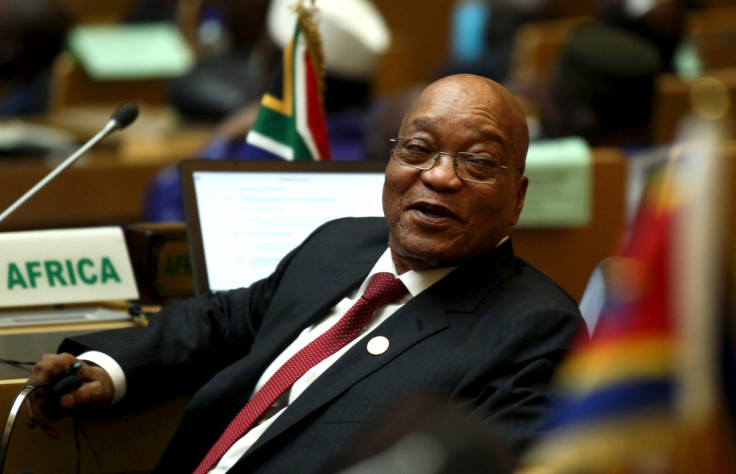South Africa: President Jacob Zuma ordered to repay $15m for luxury upgrade of Nkandla ranch

South Africa's Constitutional Court has ordered President Jacob Zuma to repay the costs for the renovation of his private Nkandla residence, for which the leader used state funds. The ruling came after opposition parties, the Democratic Alliance (DA) and the Economic Freedom Fighters (EFF), brought to the court two separate cases of misuse of state money.
Zuma, who denied the allegations, was accused of spending R246m (£11.5m, $15m) for upgrading his Nkandla homestead. The upgrades include a swimming pool, a cattle enclosure and an amphitheatre. South Africa's state anti-corruption body, the Public Protector, ruled in 2014 that the president had "unduly benefited" from the upgrades, and should pay back the money.
Now, the ConCourt has said the president violated the constitution when he failed to repay the money. According to the media summary: "The Court also held that, by failing to comply with the Public Protector's order, the President failed to 'uphold, defend and respect' the Constitution because a duty to repay the money was specifically imposed on him through the Public Protector's constitutional power."
The National Treasury will decide how much the president has to repay within 60 days, and Zuma is expected to repay that within 45 days of the ruling.
Corruption allegations
The country's opposition has already urged Zuma to step down following growing discontent and allegations of corruption. The president is accused, among other things, of having close ties with the controversial Gupta family, accused of wielding excessive political influence in the country.
Both Zuma and the Guptas denied the allegations. The ANC dismissed reports that Zuma offered to resign following mounting pressure.
Some analysts believe the president will soon lose the trust of influential members within the ruling party African National Congress (ANC). However, Stephen Chan, a leading academic specialising in South African affairs at London's Soas university, told IBTimes UK the mounting problems are unlikely to result in the ANC opting for a change of leadership.
© Copyright IBTimes 2024. All rights reserved.






